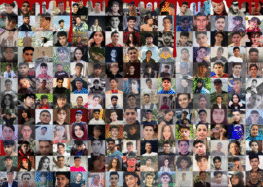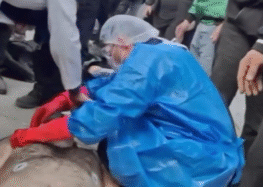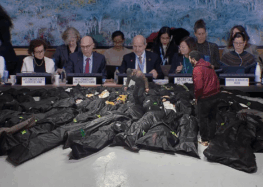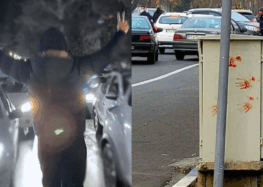Young Scientist’s Ten-Year Sentence Upheld despite Supreme Court’s Rejection of Legality of His Case
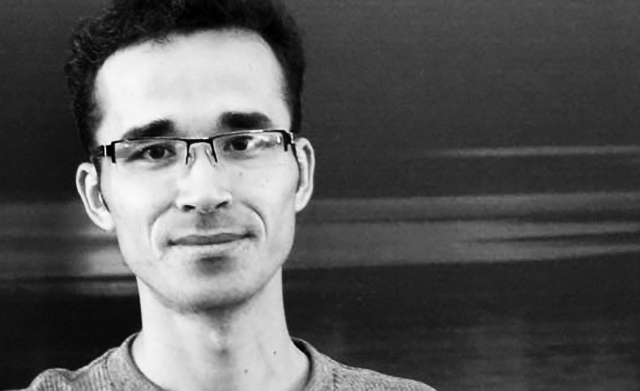
An appeals court reconfirmed Kokabee’s 10-year sentence, despite a Supreme Court’s earlier opinion that Kokabee is not guilty of the charges brought against him.
An appeals court in Tehran has upheld the ten-year prison sentence of the young scientist Omid Kokabee without regard for the earlier opinion of the Supreme Court or the reasoning set forth in their ruling on the case.
“Not only is this a blatant judicial error, it is an unprecedented dismissal of a Supreme Court ruling,” said Hadi Ghaemi, Executive Director of the International Campaign for Human Rights in Iran.
Branch 36 of the Supreme Court had recently reviewed the case and had issued a ruling stating that there was no evidence of wrongdoing by Kokabee and that there was no evidence in the case to substantiate the charges and conviction. They also rejected the charge of cooperation with an enemy state because they determined that Iran was not in a state of hostility with any country and thus there could be no designation of any government as an “enemy government.” In addition, they determined that there was nothing in Kokabee’s case that would support the charge of cooperation or collaboration with any government, let alone an enemy government. After issuing this opinion the Supreme Court forwarded the case to Branch 54 of the Tehran Province Appeals Court for review.
Kokabee’s lawyer and family had hoped that a fresh review would overrule the ten-year sentence of the Ph.D. student in light of the Supreme Court’s clear rejection of the legality of his case, but the sentence was confirmed in full.
Following the ruling by Branch 54 of the Tehran Appeals Court, Gholamhossein Mohseni Ejei, the Iranian Judiciary’s Spokesperson, explained at a recent press conference that “the process is that if a verdict is overruled and the sentence is confirmed in a lateral court, the case again goes to the Supreme Court, and if the Supreme Court does not agree with the ruling, the Supreme Court’s Insistence General Committee will convene to issue its ruling in the case.”
In an interview with the Campaign, Kokabee’s lawyer, Saeed Khalili, said that Mohseni Ejei had made a glaring error in his explanation of Omid Kokabee’s case. “Unfortunately, Mr Ejei has mistaken a retrial for an appeal. What he said is about appealing specific crimes, which do not concern my client’s case and charges. An ‘Insistence’ ruling has no place in such a case and none of the Supreme Court judges accept this opinion either,” Khalili said. He continued, “An ‘Insistence’ ruling is issued in cases such as Qisas [death sentences issued in retaliation for a murder], where in order to break heavy verdicts such as Qisas, the Supreme Court’s Insistence General Committee convenes and would subsequently issue a decision in the case,” he added. (In other words, in certain crimes such as qisas the defendant can continue appealing under a process called “Insistence.” Yet the charges for which Kokabee were convicted are not among those covered by Insistence rulings.)
Asked whether it is possible to request a retrial at this point, or whether Omid Kokabee’s ten-year prison sentence will now become final, Khalili stated that “there is a difference of opinion among the Supreme Court judges. Some judges accept the retrial where others don’t. Even if the request for a retrial is accepted at this point, the judges need new reasons for the request. We have already presented our reasons which were dismissed. We don’t have new reasons at this time. I will submit a request for a retrial, however, and I can only be hopeful.”
In an earlier interview with the Campaign in which Khalili elaborated on the illegality of the charges under which Kokabee was convicted, he stated, “As detailed and stated in the report from the International Affairs Office of the Foreign Ministry of the Islamic Republic of Iran, presently no country is in a state of hostility towards Iran, and political differences with other states do not constitute hostility. The court was mistaken in its interpretation of this expression [contact with a hostile government]. Secondly, as the individual convicted in this case has repeatedly presented in his defense, he was not in a position to have access to classified and confidential information, so that he could pass it on to a hostile government,” he added. “Omid’s ten-year prison sentence is based on the crime defined in Article 508 of the Islamic Penal Code, ‘cooperation with enemy states.’ But official authorities have confirmed that Iran is not in a state of war with any country at this time,” Khalili said. Moreover, Khalili noted that “Scientific discussions, exchanging ideas, delivering important academic topics in academic conferences, and receiving medals or awards or benefits for academic and scholastic achievements is not considered a crime.”
Omid Kokabee has been inside Evin Prison and denied furlough since 2011. He suffers from heart palpitations, asthma, and kidney disease, but despite his repeated requests for transfer to a hospital, permission for his medical care outside the prison has been denied by Judiciary officials. He is being held inside Evin Prison’s Ward 7 Quarantine, which lacks basic living facilities.
Omid Kokabee, 33, was a post-doctoral physics student at the University of Texas at Austin at the time of his arrest on January 30, 2011, at Tehran’s International Airport. He was about to leave the country after visiting family in Iran. He was kept in solitary confinement for over a month during his 15-month pre-trial detention, and his family and lawyer were not allowed access to him. On May 14, 2012, he was sentenced to ten years in prison by Judge Salavati for “contact with enemy states” and other falsified charges. Kokabee was one of thirteen individuals who were accused of espionage charges during the show trial. He refused to offer any defense during the trial. Iranian Judiciary officials have so far been unable to provide any evidence for the charges for which they prosecuted and convicted the physicist. In an open letter from Evin Prison, Kokabee wrote in 2013 that his arrest followed his refusal to cooperate with security agents on a military research project.
Omid Kokabee was awarded the 2013 Andrei Sakharov Prize from the American Physical Society for “his courage in refusing to use his physics knowledge to work on projects that he deemed harmful to humanity, in the face of extreme physical and psychological pressure.” In an open letter to Iran’s Supreme Leader Ali Khamenei on September 26, 2014, eighteen Nobel Peace Laureates asked for the “immediate and unconditional” release of Kokabee. The letter was published in the prominent scientific publication, Nature. “Omid Kokabee is an individual who has stood by his moral principles and we urge you to exhibit compassion and allow him to return to his studies in order to fulfill his promising potential,” the Nobel laureates wrote in their letter. Since the letter was sent, the number of Noble Physics Laureates who have endorsed the letter on behalf of Omid Kokabee has reached thirty-one.
In December 2014, in a statement of solidarity with the imprisoned Iranian scientist Omid Kokabee, 161 doctoral students and graduates from universities around the world released an open letter, demanding medical attention and due process for him. “We, a group of 161 Iranian PhD students and graduates, demand immediate medical attention to this Iranian scholar’s health situation, as well as a review of the judicial process that has led to Omid’s unfair imprisonment. We believe Omid should be in the university, not in prison,” said the statement. Stating that “Omid’s prosecution, for the most part, was a result of his refusal to work in nuclear projects,” the 161 signatories warned that “one of the consequences of such treatment of [Iranian] professionals abroad, is these individuals’ lack of interest in returning to and serving the country.”

